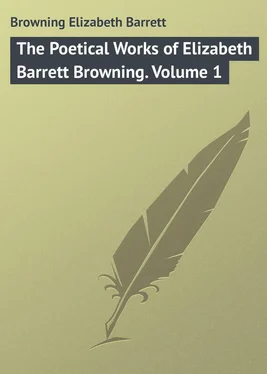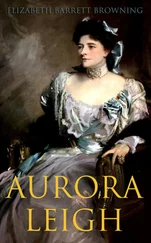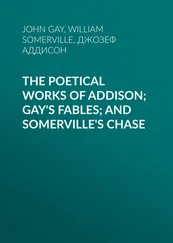Elizabeth Browning - The Poetical Works of Elizabeth Barrett Browning. Volume 1
Здесь есть возможность читать онлайн «Elizabeth Browning - The Poetical Works of Elizabeth Barrett Browning. Volume 1» — ознакомительный отрывок электронной книги совершенно бесплатно, а после прочтения отрывка купить полную версию. В некоторых случаях можно слушать аудио, скачать через торрент в формате fb2 и присутствует краткое содержание. Жанр: Поэзия, foreign_prose, foreign_poetry, на английском языке. Описание произведения, (предисловие) а так же отзывы посетителей доступны на портале библиотеки ЛибКат.
- Название:The Poetical Works of Elizabeth Barrett Browning. Volume 1
- Автор:
- Жанр:
- Год:неизвестен
- ISBN:нет данных
- Рейтинг книги:5 / 5. Голосов: 1
-
Избранное:Добавить в избранное
- Отзывы:
-
Ваша оценка:
- 100
- 1
- 2
- 3
- 4
- 5
The Poetical Works of Elizabeth Barrett Browning. Volume 1: краткое содержание, описание и аннотация
Предлагаем к чтению аннотацию, описание, краткое содержание или предисловие (зависит от того, что написал сам автор книги «The Poetical Works of Elizabeth Barrett Browning. Volume 1»). Если вы не нашли необходимую информацию о книге — напишите в комментариях, мы постараемся отыскать её.
The Poetical Works of Elizabeth Barrett Browning. Volume 1 — читать онлайн ознакомительный отрывок
Ниже представлен текст книги, разбитый по страницам. Система сохранения места последней прочитанной страницы, позволяет с удобством читать онлайн бесплатно книгу «The Poetical Works of Elizabeth Barrett Browning. Volume 1», без необходимости каждый раз заново искать на чём Вы остановились. Поставьте закладку, и сможете в любой момент перейти на страницу, на которой закончили чтение.
Интервал:
Закладка:
Browning Elizabeth Barrett
The Poetical Works of Elizabeth Barrett Browning, Volume 1
PREFATORY NOTE
In a recent "Memoir of Elizabeth Barrett Browning," by John H. Ingram, it is observed that "such essays on her personal history as have appeared, either in England or elsewhere, are replete with mistakes or misstatements." For these he proposes to substitute "a correct if short memoir: " but, kindly and appreciative as may be Mr. Ingram's performance, there occur not a few passages in it equally "mistaken and misstated."
1. "Elizabeth, the eldest daughter of Edward Moulton Barrett, was born in London on the 4th of March, 1809." Elizabeth was born, March 6, 1806, at Coxhoe Hall, county of Durham, the residence of her father. 1 1 The entry in the Parish Register of Kelloe Church is as follows: – Elizabeth Barrett Moulton Barrett, daughter and first child of Edward Barrett Moulton Barrett, of Coxhoe Hall, native of St James's, Jamaica, by Mary, late Clarke, native of Newcastle-upon-Tyne, was born, March 6th, 1806, and baptized 10th of February, 1808.
"Before she was eleven she composed an epic on 'Marathon.'" She was then fourteen.
2. "It is said that Mr. Barrett was a man of intellect and culture, and therefore able to direct his daughter's education, but be that so or not, he obtained for her the tutorial assistance of the well-known Greek scholar Hugh Stuart Boyd … who was also a writer of fluent verse: and his influence and instruction doubtless confirmed Miss Barrett in her poetical aspirations." Mr. Boyd, early deprived of sight from over-study, resided at Malvern, and cared for little else than Greek literature, especially that of the "Fathers." He was about or over fifty, stooped a good deal, and was nearly bald. His daily habit was to sit for hours before a table, treating it as a piano with his fingers, and reciting Greek – his memory for which was such that, on a folio column of his favourite St. Gregory being read to him, he would repeat it without missing a syllable. Elizabeth, then residing in Herefordshire, visited him frequently, partly from her own love of Greek, and partly from a desire for the congenial society of one to whom her attendance might be helpful. There was nothing in the least "tutorial" in this relation – merely the natural feeling of a girl for a blind and disabled scholar in whose pursuits she took interest. Her knowledge of Greek was originally due to a preference for sharing with her brother Edward in the instruction of his Scottish tutor Mr. M'Swiney rather than in that of her own governess Mrs. Orme: and at such lessons she constantly assisted until her brother's departure for the Charter House – where he had Thackeray for a schoolfellow. In point of fact, she was self-taught in almost every respect. Mr. Boyd was no writer of "fluent verse," though he published an unimportant volume, and the literary sympathies of the friends were exclusively bestowed on Greek.
3. "Edward, the eldest of the family," was Elizabeth's younger by nearly two years. He and his companions perished, not "just off Teignmouth," but in Babbicombe Bay. The bodies drifted up channel, and were recovered three days after.
4. "Her father's fortune was considerably augmented by his accession to the property of his only brother Richard, for many years Speaker of the House of Assembly at Jamaica." Mr. Edward Moulton, by the will of his grandfather, was directed to affix the name of Barrett to that of Moulton, upon succeeding to the estates in Jamaica. Richard was his cousin, and by his death Mr. Barrett did not acquire a shilling. His only brother was Samuel, sometime M.P. for Richmond. He had also a sister who died young, the full-length portrait of whom by Sir Thomas Lawrence (the first exhibited by that painter) is in the possession of Octavius Moulton-Barrett at Westover, near Calbourne, in the Isle of Wight. With respect to the "semi-tropical taste" of Mr. Barrett, so characterised in the "Memoir," it may be mentioned that, on the early death of his father, he was brought from Jamaica to England when a very young child, as a ward of the late Chief Baron Lord Abinger, then Mr. Scarlett, whom he frequently accompanied in his post-chaise when on Circuit. He was sent to Harrow, but received there so savage a punishment for a supposed offence ("burning the toast") by the youth whose "fag" he had become, that he was withdrawn from the school by his mother, and the delinquent was expelled. At the age of sixteen he was sent by Mr. Scarlett to Cambridge, and thence, for an early marriage, went to Northumberland. After purchasing the estate in Herefordshire, he gave himself up assiduously to the usual duties and occupations of a country gentleman, – farmed largely, was an active magistrate, became for a year High Sheriff, and in all county contests busied himself as a Liberal. He had a fine taste for landscape-gardening, planted considerably, loved trees – almost as much as his friend, the early correspondent of his daughter, Sir Uvedale Price – and for their sake discontinued keeping deer in the park.
Many other particulars concerning other people, in other "Biographical Memoirs which have appeared in England or elsewhere" for some years past, are similarly "mistaken and misstated: " but they seem better left without notice by anybody.
R. B.29 De Vere Gardens, W.
December 10, 1887.
Dedication
When your eyes fall upon this page of dedication, and you start to see to whom it is inscribed, your first thought will be of the time far off when I was a child and wrote verses, and when I dedicated them to you who were my public and my critic. Of all that such a recollection implies of saddest and sweetest to both of us, it would become neither of us to speak before the world, nor would it be possible for us to speak of it to one another, with voices that did not falter. Enough, that what is in my heart when I write thus, will be fully known to yours.
And my desire is that you, who are a witness how if this art of poetry had been a less earnest object to me, it must have fallen from exhausted hands before this day, – that you, who have shared with me in things bitter and sweet, softening or enhancing them, every day, – that you, who hold with me, over all sense of loss and transiency, one hope by one Name, – may accept from me the inscription of these volumes, the exponents of a few years of an existence which has been sustained and comforted by you as well as given. Somewhat more faint-hearted than I used to be, it is my fancy thus to seem to return to a visible personal dependence on you, as if indeed I were a child again; to conjure your beloved image between myself and the public, so as to be sure of one smile, – and to satisfy my heart while I sanctify my ambition, by associating with the great pursuit of my life, its tenderest and holiest affection.
Your E. B. B.London: 50 Wimpole Street,
1844.
PREFACE
The collection here offered to the public consists of Poems which have been written in the interim between the period of the publication of my "Seraphim" and the present; variously coloured, or perhaps shadowed, by the life of which they are the natural expression, – and, with the exception of a few contributions to English or American periodicals, are printed now for the first time.
As the first poem of this collection, the "Drama of Exile," is the longest and most important work (to me !) which I ever trusted into the current of publication, I may be pardoned for entreating the reader's attention to the fact, that I decided on publishing it after considerable hesitation and doubt.
Читать дальшеИнтервал:
Закладка:
Похожие книги на «The Poetical Works of Elizabeth Barrett Browning. Volume 1»
Представляем Вашему вниманию похожие книги на «The Poetical Works of Elizabeth Barrett Browning. Volume 1» списком для выбора. Мы отобрали схожую по названию и смыслу литературу в надежде предоставить читателям больше вариантов отыскать новые, интересные, ещё непрочитанные произведения.
Обсуждение, отзывы о книге «The Poetical Works of Elizabeth Barrett Browning. Volume 1» и просто собственные мнения читателей. Оставьте ваши комментарии, напишите, что Вы думаете о произведении, его смысле или главных героях. Укажите что конкретно понравилось, а что нет, и почему Вы так считаете.












